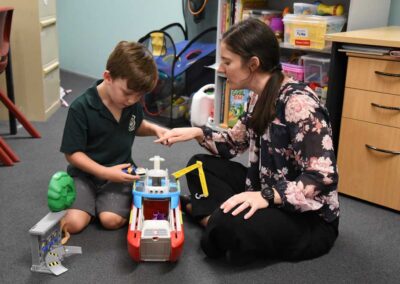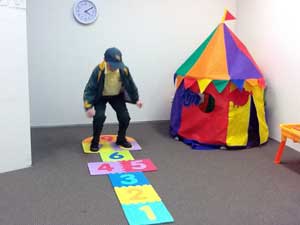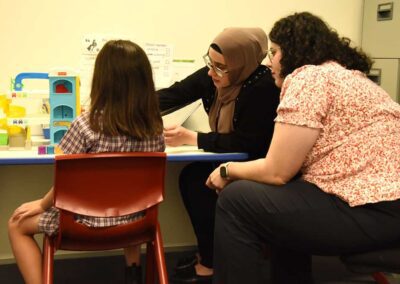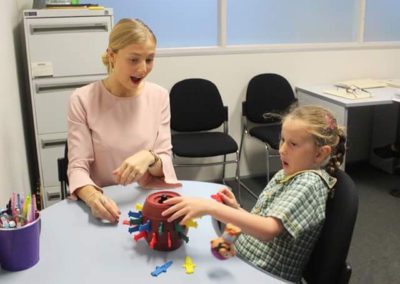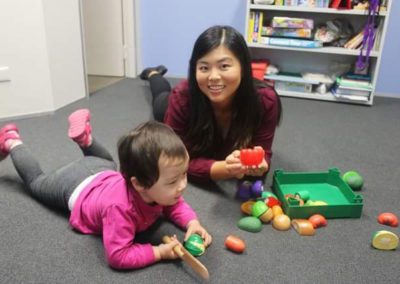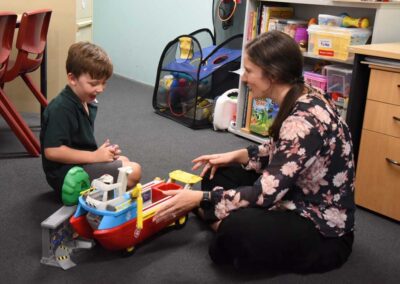
Communication is central to human interaction, shaping every aspect of our lives from social relationships to academic and professional success. For individuals experiencing speech and/or language delays or disorders, early intervention can make a huge difference in building their potential. We will discuss the significance of early intervention in speech therapy and how it lays the foundation for supporting development as well as building lifelong communication skills.
During the early years of life, the brain is highly receptive to learning and forming new connections and this period is particularly crucial for language development. By intervening as soon as possible, speech pathologists can take advantage of this optimal learning window to support the acquisition of essential communication skills.
Early intervention in speech therapy aims to identify and address speech and language delays as soon as possible, maximising a child’s developmental potential. Targeting correct production of speech sound errors can improve a child’s clarity and therefore make it easier for them to form peer relationships in the preschool years. Identifying language disorders early on can result in improved language skills such as increased vocabulary, sentence length and grammatical markers (e.g. plural form, past tense). Building a child’s phonological (sound) awareness before they start school lays the foundations for reading and spelling success. Evidence points to greater success when stuttering intervention is provided in the preschool years. By providing targeted therapy specified to the individual needs of each child, speech pathologists can lessen the impact of speech and language challenges on overall development.
Speech and language difficulties can have a large impact beyond just communication. Children with speech or language disorders may struggle academically, experiencing challenges with reading, writing and comprehension. Communication difficulties can also hinder social interactions, leading to feelings of frustration and low self-esteem. Early intervention in speech therapy can address these challenges, providing children with the skills and confidence to succeed both academically and socially.

Early intervention in speech therapy is not solely focused on the child, it should also extend to the family. Parents and caregivers play a vital role in supporting their child’s communication development. Speech pathologists work collaboratively with parents and caregivers to provide guidance, resources and strategies to promote speech and language skills in the clinic and at home. By fostering family engagement and empowerment, parents learn to support their children’s skills in their everyday environment, where it matters most. For example, when parents learn to expand on their child’s one word utterances, to create communication opportunities in their daily routines or to identify and correct their child’s articulation errors, the child’s skills will develop more quickly and will transfer to their everyday communication.

The benefits of early intervention in speech therapy extend far into the future, potentially reducing long term impacts of speech and language difficulties. By addressing communication challenges early, children are better equipped to navigate, school, build strong social relationships and ultimately achieve their full potential. Early intervention improves immediate outcomes but also lays a solid foundation for lifelong communication success.
Early intervention in speech therapy addresses speech and language difficulties but also provides a child the capability of achieving their full potential to communicate effectively, thrive academically and engage meaningfully with the people around them. By identifying and addressing communication challenges early, speech pathologists can make a large difference in the lives of children and their families, leading them on a path of success and fulfilment.


